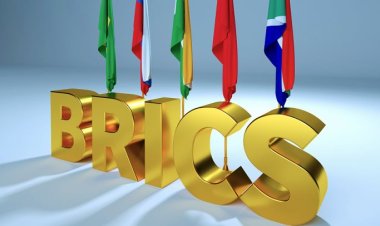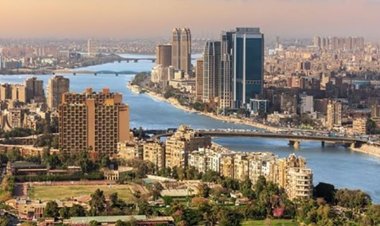The UAE is leading efforts to enable clean electricity in the world
Emirates Airlines operates the first flight in the world with 100% sustainable fuel
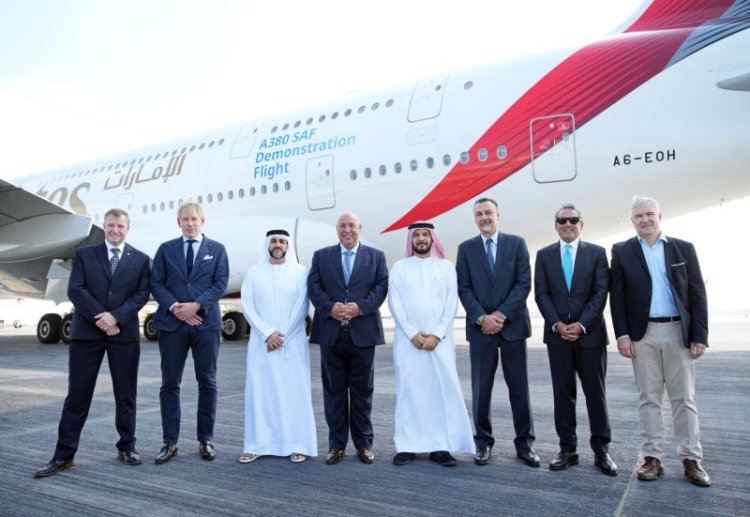
Emirates Airlines has become the first air carrier in the world to operate a test flight of the Airbus A380 using 100% sustainable aviation fuel.
According to what was reported by the Emirates News Agency (WAM), the flight took off from Dubai International Airport using 100% sustainable aviation fuel (SAF), in one of its four engines.
performance test
This was to test the performance and help demonstrate the potential of this type of fuel as a direct alternative that matches the technical and chemical specifications of aviation fuel. Research and studies indicate that SAF reduces carbon emissions by up to 80% compared to traditional aviation fuel.
The test flights pave the way for 100% unification of the specifications and standards of SAF fuel, and its adoption in the future for aviation, and governments are adopting broader strategies to support and expand the production of this fuel.
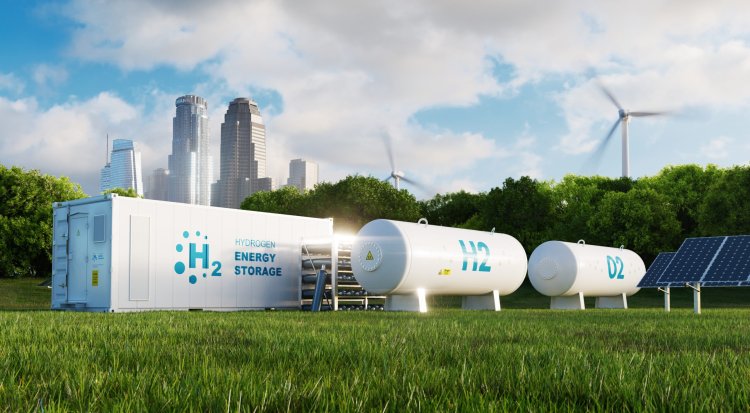
Clean energy projects
The UAE is focusing extensively on clean energy projects and largely on clean electricity, in line with its Energy Strategy 2050, which aims to enhance reliance on renewable energy sources and improve energy efficiency.
Clean electricity is the most effective tool for decarbonizing economies, with the need for growth in solar and wind energy installations, and the development of a general policy to accelerate the adoption of green hydrogen across multiple sectors, which the United Arab Emirates has succeeded in doing.
The UAE leads the world's efforts
The UAE is the first Gulf country to announce its goal to reach net zero emissions by 2050. According to Radiant Energy data, the UAE has led global efforts over the past five years in accelerating the use of clean electricity, as it ranked first in that sector with a score of 557 Kilowatt hours/person.
Australia came in second place with a rate of 380 kWh/capita, then Finland with a rate of 317 kWh/capita, in fourth place was the Netherlands with a rate of 301 kWh/capita, and in fifth place was South Korea with a rate of 185 kWh/capita.
Wind Energy
The UAE has taken successful steps, strengthening its global leadership in clean electricity, both in its successful efforts to enable wind and solar energy, as well as green hydrogen, as well as an intense focus on seawater desalination projects with renewable energy, in line with its 2036 Water Security Strategy.
Last October, the UAE launched a wind energy program with the aim of developing wind stations to generate electricity with a production capacity of 103.5 megawatts, according to a statement published by the Abu Dhabi Media Office.
The wind project is in line with the UAE's efforts to reach zero emissions by 2050, as it prepares to host the COP 28 summit scheduled to be held in Dubai between November 30 and December 12.
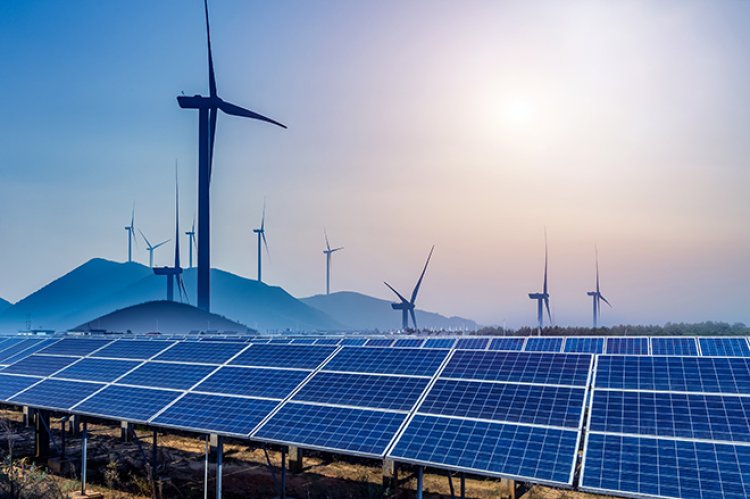
Solar energy in the UAE
Solar energy is the second source of electrical energy produced in the Emirates, as the country enjoys sunny weather most days of the year, which has made the sun an ideal alternative for providing renewable and sustainable energy that achieves a strategy of zero greenhouse gas emissions and is cost-competitive.
The UAE launched ambitious initiatives to increase reliance on solar energy, as it continued to build renewable and clean energy projects, most notably the Shams Abu Dhabi project and the Mohammed bin Rashid Al Maktoum Solar Park in Dubai, whose production capacity will reach 5,000 megawatts by 2030.
The UAE is also working on building the Al Dhafra photovoltaic solar power station in Abu Dhabi, which is the largest independent station in the world to produce electricity from solar energy within one site with a capacity of up to 2 gigawatts of electricity.
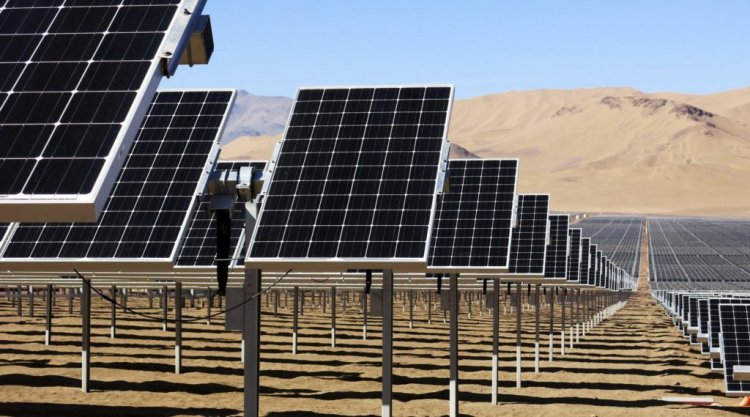
Green hydrogen in the UAE
The UAE has strengthened its efforts in using green hydrogen, as it launched the National Hydrogen Strategy, which aims to support local low-emission industries, contribute to achieving climate neutrality, and promote and achieve global leadership in the field of hydrogen production until 2031.
The strategy targets a domestic production of 1.4 million tons per year of low-carbon hydrogen by 2031, with an ambitious plan to increase production to 15 million tons per year by 2050.
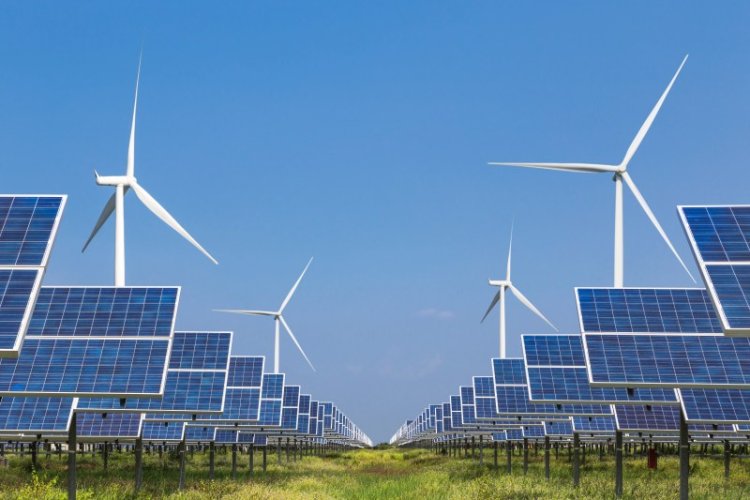
The first green hydrogen iron factory
Abu Dhabi Future Energy Company “Masdar”, one of the world’s leading companies in the field of renewable energy, entered into a partnership on Wednesday, November 22, 2023, with the “Emirates Arkan Steel” group, one of the largest listed companies operating in the manufacture of iron, steel, and building and construction materials in the region.
According to the Emirates News Agency, the partnership aims to develop an innovative green hydrogen project with the aim of reducing carbon emissions in the energy-intensive steel sector in the country.


 Shrouq
Shrouq 







